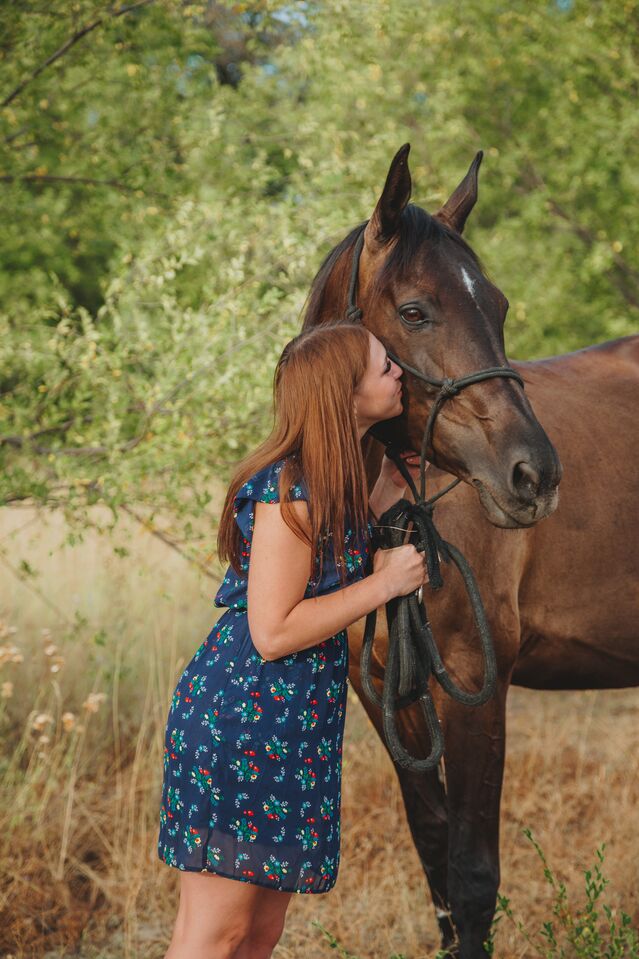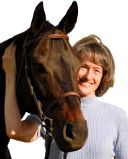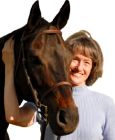Trust
Trouble in Pentathlon Show Jumping
In horse sports, the “equipment” has a mind of its own.
Posted August 10, 2021 Reviewed by Ekua Hagan
Key points
- Based on one incident of animal abuse, PETA is now calling for a ban on all horse sports in the Olympic games.
- Most horse people take excellent care of their animals and are outraged by abusive behavior.
- Horse-and-human teams need time to develop the trust that allows for good jumping performance. This doesn't occur in the Olympic pentathlon.
Last week, the Olympic Committee banned a German horse trainer for punching a horse and encouraging a rider to beat it into submission for balking at the entry gate and refusing to jump. No one needs to call out the bad of such human behavior—it’s obviously wrong. Unfortunately, a few abusive individuals exist in every realm, sullying the reputations of entire classes, colors, or categories of people. The daily news sensationalizes these rare anomalies but ignores a million examples of good people who do the right thing.
That’s what’s going on here. One trainer abused one horse in an episode that I believe demands lifelong banishment from the sport and a major industry change. But based on that incident, PETA is now calling for a ban on all horse sports in the Olympic games.
Most performance horses enjoy excellent care
The vast majority of people who own and ride performance horses take excellent care of them. Most performance horses are pampered with warm baths, fancy trailers, fleece-lined everything to soften the feel of saddles or bridles on their skin, physical therapy, massage, excellent veterinary care, immediate rehabilitation for injury, and far better nutrition than many humans enjoy. Some live in heated or air-conditioned barns with the freedom to play or graze in thick green pastures day or night. Horses today live longer, healthier, happier lives than they did 50 years ago because of the outstanding treatment most of them receive.
That kind of care takes complete devotion to the animals’ welfare 24 hours a day. Come on out to the ranch with me sometime and sling 50-pound hay bales onto a stack above your head. Grab a shovel and lift damp manure until your palms are raw meat. Ride 8 or 10 horses in a row to wake your legs up. Repair today’s equine damage to fence posts, automatic waterers, and steel gates. Master the fear of sitting on top of 1200-pound prey animals who become hysterical at unexpected moments.
Horses at top barns are supervised day and night, they and their surroundings are cleaned at least once a day, and they get daily exercise as well as daily play with their equine buddies. We work hard to maintain this standard of living for our animals because we love them deeply. So when we see someone abuse, neglect, drug, or take unfair advantage of a horse, we are outraged.

Problems with the Olympic pentathlon
There is no excuse for beating or even becoming angry at a horse who has not been properly trained to do his job. That’s what happened at the pentathlon. The Olympic pentathlon is not an equestrian event. It’s a historical artifact that represents the skills needed for war. In ancient Greece, these comprised running, wrestling, discus, javelin, and long jump. Since 1912, pentathlon skills have included running, shooting, fencing, swimming, and—oddly enough—show jumping.
Pentathletes are required to jump a horse over a set course of 15 obstacles, each about 4 feet in height. This is not a simple request. And the challenge grows immeasurably with the fact that each rider is paired with an unknown horse only 20 minutes before the event.
My work in brain-based horsemanship is founded on the principle that every horse and rider form a brain-to-brain team. Both partners in the team are equally important. The team bonds over time with trust and learns to communicate in mutual interaction as a byproduct of that trust.
It is not possible to build trust between predator and prey brains in 20 minutes, or even in 20 days. The fact that predator and prey brains are capable of building trust at all, or of communicating mutually in real-time, is remarkable in itself. To speed the process for "sport" is unfair and dangerous to both parties.
Forty years ago, most equitation riders were expected to ride unfamiliar horses over a jump course in equestrian events. The jump heights were low, and the courses were relatively easy. Top participants in each class traded horses, so the horse you got was usually one you had watched a competitor ride many times.
The key phrase in that paragraph is “40 years ago.” Even with lower fences, easier courses, and some familiarity with individual horses, equitation judges stopped asking riders to trade horses long ago. It was dangerous to the riders, potentially damaging to the horses, and harmful to the general public’s appreciation of horse sports. The insurance liability alone was enough to halt the practice.
I think horse lovers everywhere will join me in encouraging change to the Olympic pentathlon show jumping event. It takes complete focus on horse sport to ride well enough to hop on an unfamiliar horse 20 minutes before guiding it around a 4-foot, 15-obstacle course in an atmosphere that would frighten any self-respecting prey animal. You can’t learn that while perfecting your abilities at 4 other sports simultaneously. With full knowledge of horses, no responsible sport committee would suggest or approve a 20-minute limit to the introduction between horse and rider prior to such an event.
Here’s a suggestion: Let’s leave the equestrian sports to the equestrians. Find a fifth pentathlon sport that is more conducive to its athletes and to its history as a representation of soldiers’ skills. Root out and banish the few individuals in every sport who are abusive, so the rest of us can do our jobs well and continue to take good care of our magnificent animals.




